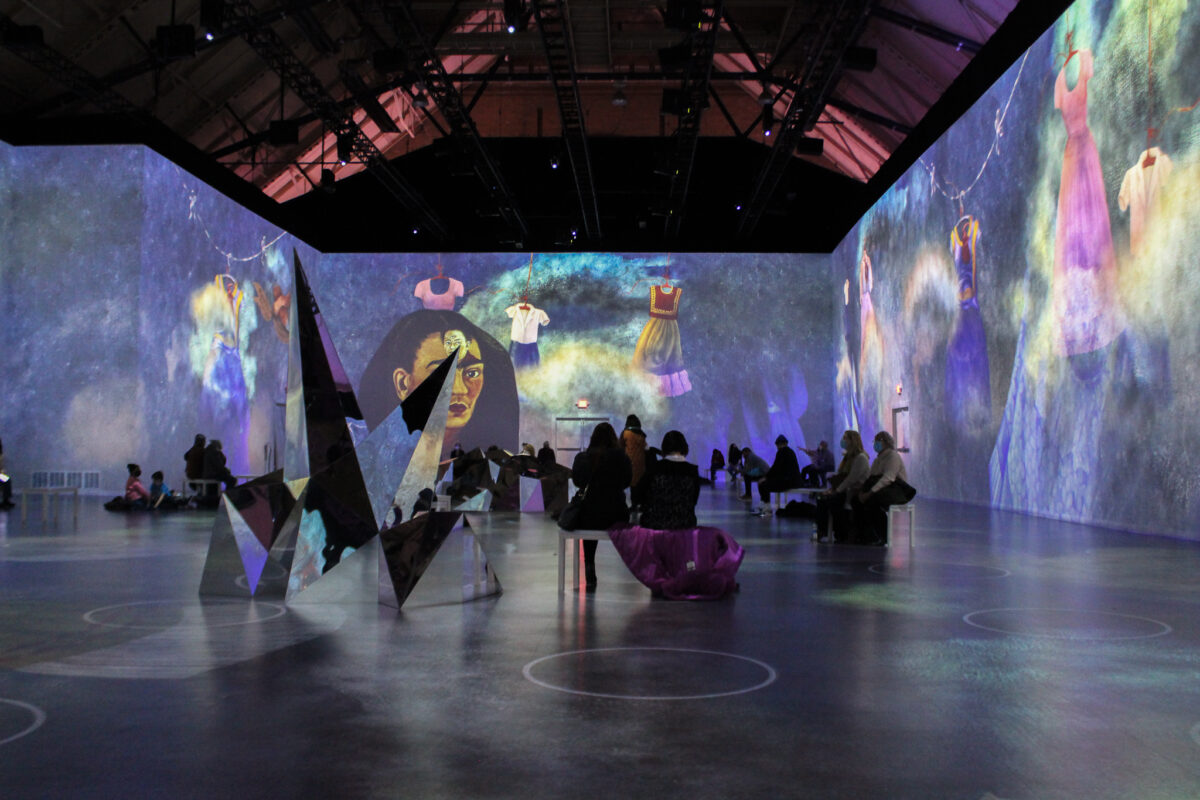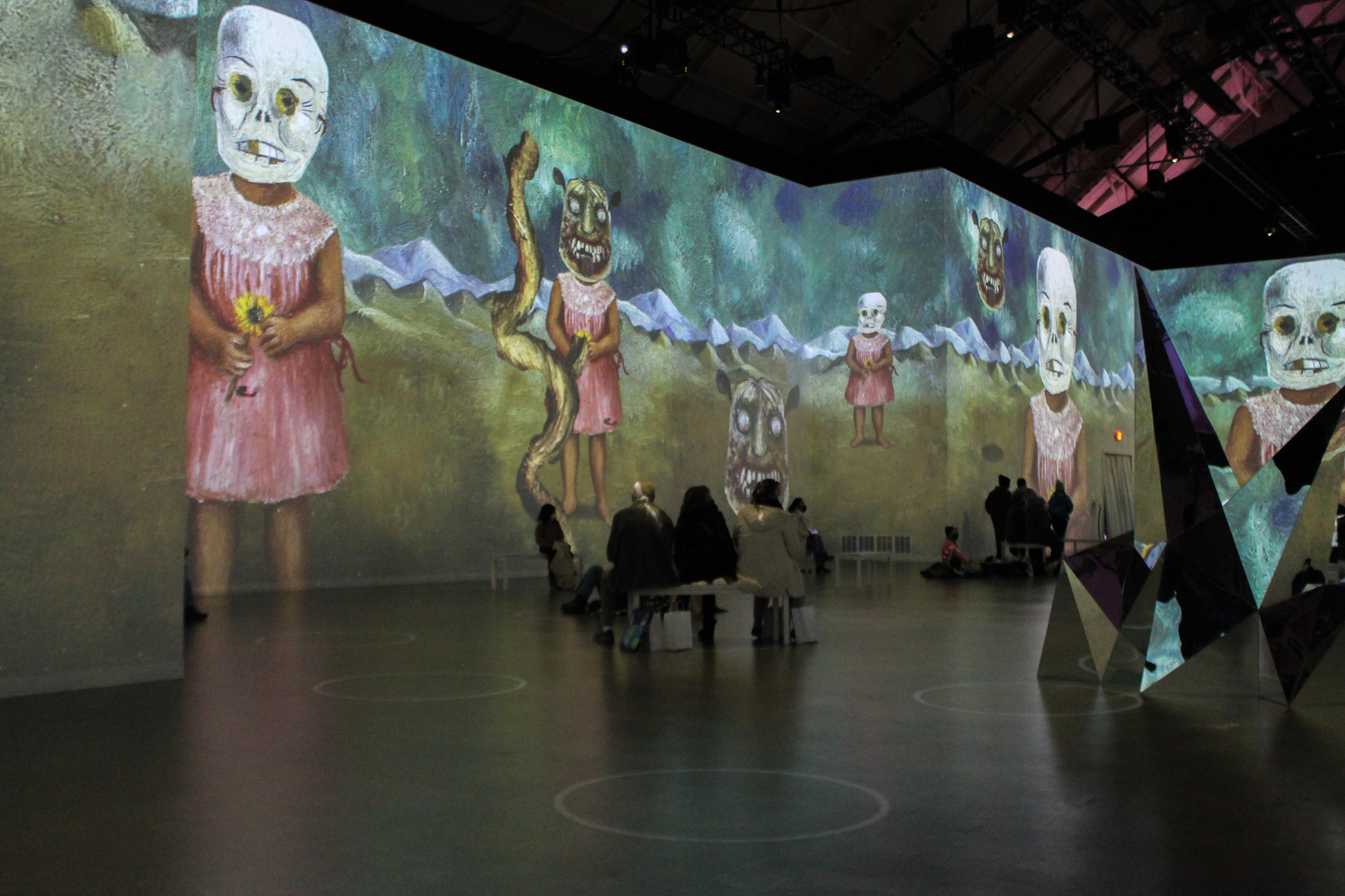
The immersive digital experiences that have been flooding Boston and other cities are not Art with a capital “A.” But they do serve the purpose of making complex art historical figures more approachable, and perhaps more entertaining, to a wide audience.
“Immersive Frida Kahlo,” showing at The Castle on Columbus Avenue in Boston, was particularly difficult for the creators to pull off, due to image licensing issues. Kahlo’s work is not in the public domain, and each image must be licensed for use in any project. As a result, there are what feels like a small number of Kahlo’s actual paintings in this installation. The rest is moving photographs and manufactured digital imagery alluding to, but not explaining, various components of her life story, such as her marriage to Diego Rivera and her associations with the communist party.
“Frida is the most relevant artist to today’s world,” says Svetlana Dvoretsky, co-founder of Lighthouse Immersive, the company organizing the United States tour of this experience. “We felt that creating a show on Frida would be so connected and so relevant to all the social questions that society is trying to answer right now.”
This is certainly true. The trio of artists portrayed in the Lighthouse Immersive installations, originally created by Italian designer Massimiliano Siccardi, includes Vincent Van Gogh, Frida Kahlo and Gustav Klimt. Van Gogh and Klimt are technically crucial to the art historical narrative and have fascinating personal histories. But Kahlo is a social icon as well as an artistic one. She was queer, disabled, a feminist, a Latin American woman proud of her heritage and an artistic powerhouse.![]()
![]()
 Unfortunately, without previous context about Kahlo’s lif
Unfortunately, without previous context about Kahlo’s lif![]() e, visitors to “Immersive Frida Kahlo” wouldn’t come away knowing that. A few descriptions at the entrance to the exhibit provide basic facts about Kahlo without really illustrating how multifaceted she was. Aside from that, audiences are led directly into the large rectangular room where the screen-saver-style image show is played.
e, visitors to “Immersive Frida Kahlo” wouldn’t come away knowing that. A few descriptions at the entrance to the exhibit provide basic facts about Kahlo without really illustrating how multifaceted she was. Aside from that, audiences are led directly into the large rectangular room where the screen-saver-style image show is played.
Though the production may be lacking in context and quality, it does, ideally, whet the artistic appetites of visitors. With luck, people come away wondering about Kahlo’s life, and they can look for answers in the institutions around Boston that can offer a more genuine art experience. Never fear, you can take pictures for your Instagram there as well.
For a deeper education on Kahlo, the Rose Art Museum’s show “Frida Kahlo at the Rose Art Museum” runs through December 2022 and displays several of Kahlo’s paintings alongside photographs of her throughout her life. These images and curatorial notes provide the context and room for dialogue that the immersive experience does not.
In our contemporary world, there is a place for social-media-driven experiences like “Immersive Frida Kahlo,” but in an arts space, they are best accented with the real thing.
Read the full article in The Bay State Banner.